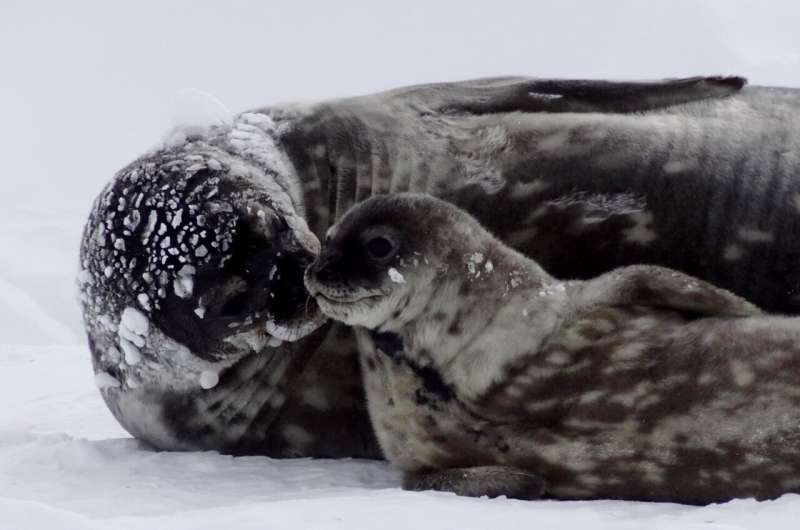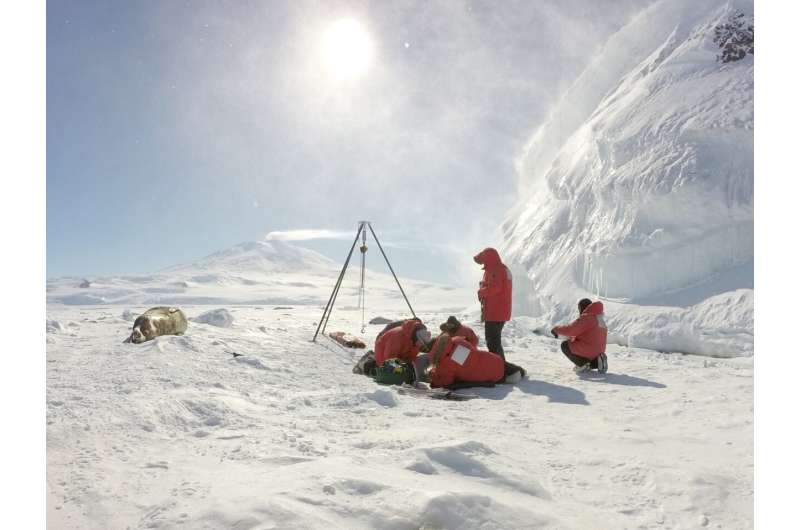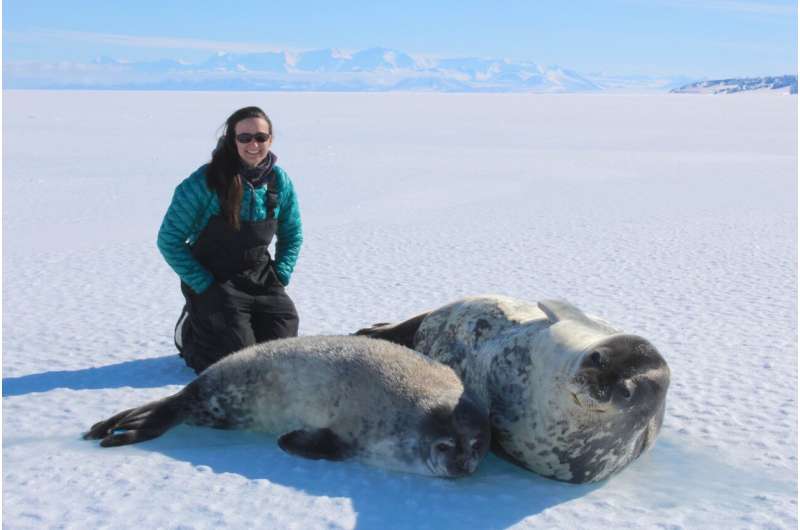
The mothers of the Weddell seals limit their diving and underwater searching capabilities due to the amount of iron they give to their pups.
The paper "Iron Mobilization during Lactation Reduces Oxygen Stores in a Diving mammal" has been published.
Post-partum females have shorter dive durations than skip-breeders when it comes to maintaining their own heme, due to the overload of large amounts of iron. The cost of reproduction in marine mammals is impacted by high iron demand during breastfeeding.
The lead author of the paper says that seals have more iron in their bodies than mammals. Shero says that it acts as an internal scuba tank for the animals that allow them to dive for a long time. The females transfer their diving capacities to the pups when they nurse. Nobody has looked at that before.

The study shows that a female seal transfers more iron to her pup than any other mammal. The paper states that the rate of transfer is 8-15 times higher than that of mammals that exceed daily upper limits and result in iron toxicity for humans.
The longest recorded dive by the Weddell seals was 96 minutes. The study states that when the seals are pregnant, they give their pups an enormous amount of iron, which the mothers use to maintain high tissue hemoprotein levels.
The late summer dives were the shortest in duration when compared to the rest of the year.
According to the paper, reduced dive capacity would be detrimental to a seal's recovery of body mass and lipids. The paper states that the impact of reduced aerobic dive capacities may be mitigated if tied to the seasonal pulse of productivity. Post-partum females gained mass despite their shorter dive durations, which indicates that they were not negatively impacted by reduced dive capacity.

The paper cautions that the precise temporal matching of decreased dive potential with the seasonal pulse of productivity may make this species more vulnerable to climate regime shifts.
"It's pretty striking that the females wean their pups during this time when there is a lot more productivity around, and when that productivity seems to be less in the water column," says co-author Jennifer Burns. The female seals may not need to work as hard to catch prey because of their limited dive capacities. Even though their pups have less dive capacity than their mothers, being weaned during a period of high productivity may help them. The seals wouldn't be as successful if the pulse in productivity changed.
In the long-run, if the environment changes such that the seals have to catch fish with low iron, how much they can store in their bodies for these long dives, and how much they can provide, that is going to influence the seals' iron physiology, and how much they can
Shero has been studying the Weddell seals for the past four years.
Shero wants the study to open up the field of iron physiology and how it affects the seals ability to dive and rear their pups. There is more to the story than just looking at the number of fish the seals can catch. She believes that iron dynamics should be considered for seal management. According to Burns, certain types of prey may be more important than previously thought, especially during certain times of the year, such as just before giving birth and just after wed, when iron intake may be critical for both mothers and their pups.
More information: Michelle R. Shero et al, Iron mobilization during lactation reduces oxygen stores in a diving mammal, Nature Communications (2022). DOI: 10.1038/s41467-022-31863-7 Journal information: Nature Communications